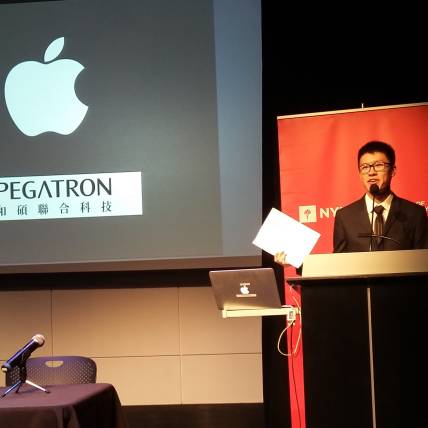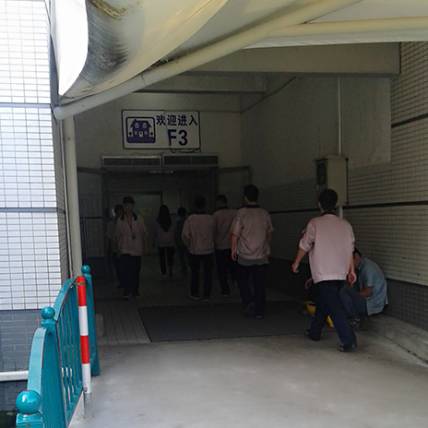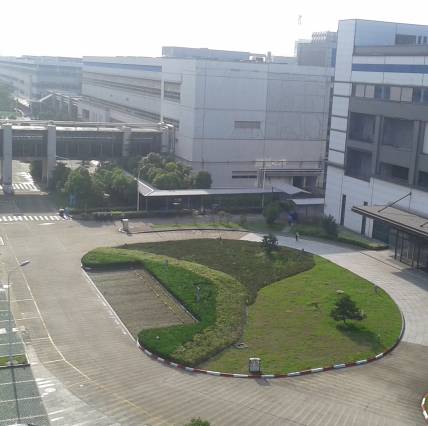Student Dejian Zeng Worked in an iPhone Factory in China to See How Workers Were Treated

It may just be possible that Dejian (Ken) Zeng had a role in assembling your iPhone. He spent six weeks toiling at a Shanghai factory where the ever-popular products are churned out.
For Zeng (MPA 2017), whose NYU Wagner specialization is international development and management, the purpose was not to earn the US equivalent of $125 a week that he and fellow factory workers cleared with overtime, deducting for room and board. Rather, he went there to find out about the working conditions first-hand.
In the summer of 2016, Zeng showed up at the gates of the Taiwanese Pegatron-owned factories known as Changshuo, showed his identification, demonstrated all his fingers were intact, and recited the English alphabet. In all of 30 seconds, he says, he was let in.
Three days later, after a physical exam and lots of paperwork, he signed a contract and joined the assembly line, feeding tiny screws with a motorized tool into the back of the iPhone 6 and 7 to secure their miniature speaker – 1,800 screws a day, by his estimate.
Like his fellow workers, wearing blue caps and pink jackets, Zeng spent 12 hours a day at the factory. Each was compensated for 10.5 hours, as 10-minute breaks permitted every two hours, 50 minutes for lunch and 30 minutes for dinner were all unpaid.

Assigned to a night shift, he bunked with seven other men ages 18 to 28 in a company dormitory, part of a fluid workforce of thousands from urban and rural areas, many uneducated, others with bachelor’s degrees.
Zeng stayed for six weeks, subsequently giving an interview about the experience to the Carnegie Council for Ethics in International Affairs. He conducted his field work as a recipient of an NYU Gallatin Global Human Rights Fellowship and in cooperation with a non-governmental organization – or NGO – called China Labor Watch, with offices in New York and China.
Although the factory, which has a union, raised workers’ wages in 2016 in keeping with Shanghai City regulations, workers took home nearly 23 percent less than the previous year, Zeng calculates. In raising the wage, he adds, the company eliminated compensation for meals as well as various bonuses at the same time.

“We assumed that these kind of huge wage reductions would cause some reactions from the workers, so we waited for a strike, and that’s why I was there [in order to observe a possible walkout],” explains Zeng, who grew up in Guangzhou, China. “But the strike didn’t happen.”
The factories, he tells the Carnegie Council interviewer, have high turnover rates – “it’s very normal for workers to leave factories after two weeks or one month” – and in this case, their usually better-paid managers, who possess influence to lead a walkout, did not take the initiative.
Still, Zeng contends there are other effective ways to spur improvements for workers in factories that produce products Americans like to buy – including targeting international brands with public pressure generated by activist consumers and NGO’s.
“From my experience there, I did find that this was so, because every time Apple comes to audit, you can feel that kind of anxiety in the factories,” he explains. “They care about it. They are nervous about it.”